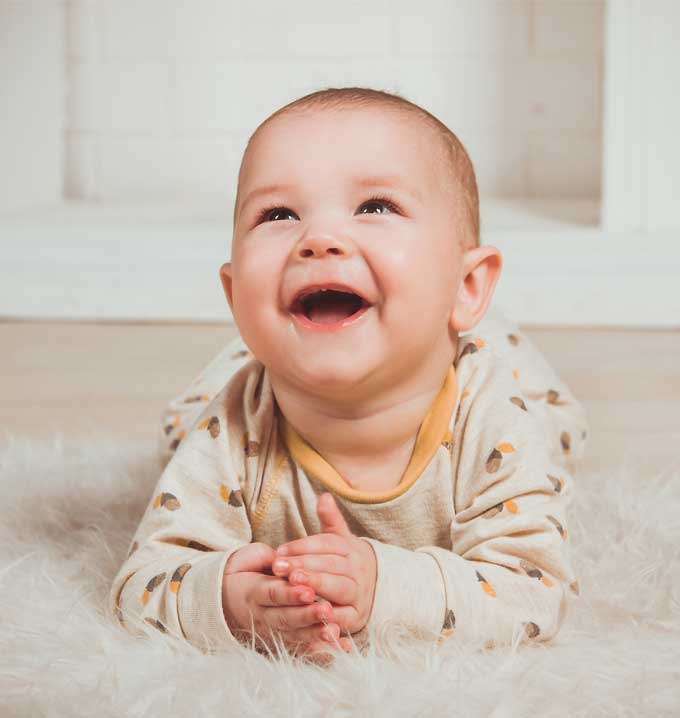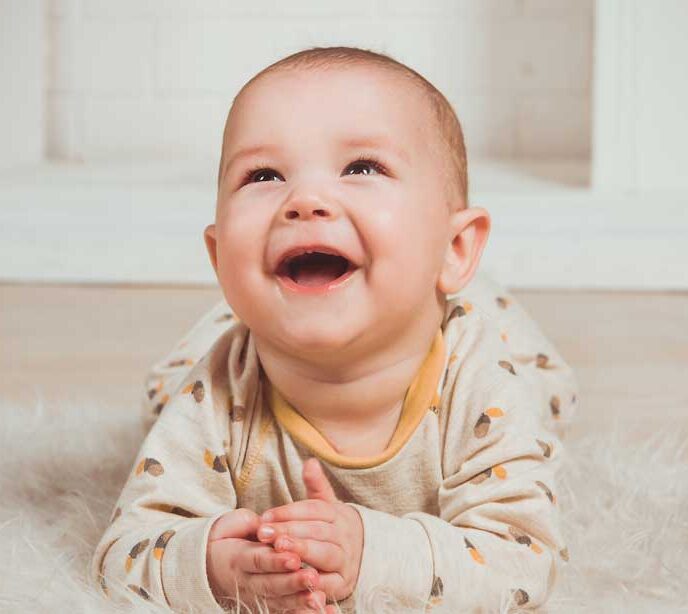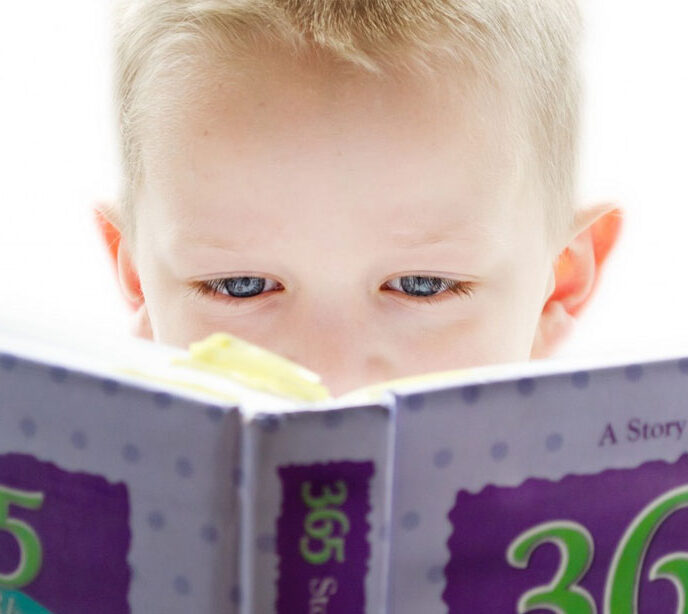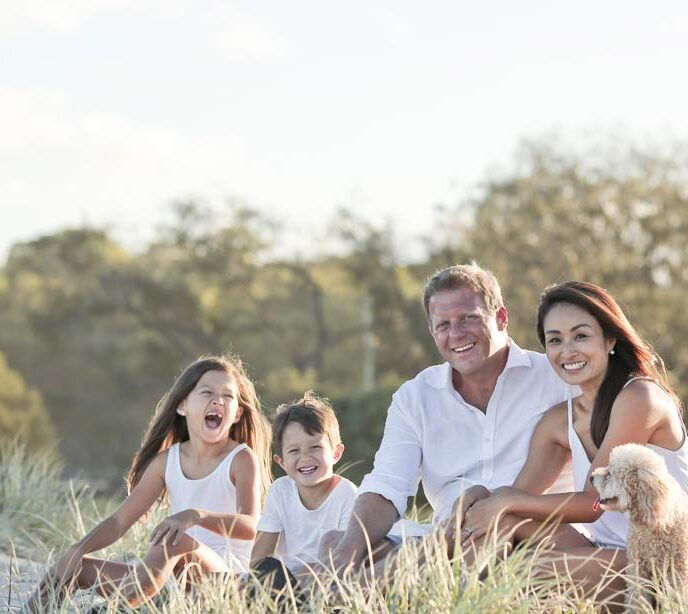Do Babies with Autism Smile?
We take a look at the importance of early intervention, some of the milestones for parents to look out for, and the more common signs of autism in babies.

Do Babies with Autism Smile?
Watching your baby grow is an exciting time, certainly one of life’s quiet wonders. From those first sleepy stretches to the moments they start to smile back at you, the small moments turn parenting into a gift. As a parent or caregiver, you have a direct line of sight to your child’s development and are often the first to notice the small shifts that signal new skills.
While every baby develops at their own pace, some differences can raise early questions about their developmental path. In particular, many parents wonder: Do babies with autism smile? And if so, how might that smile look different from what’s expected?
In this blog, we’ll explore the role of smiling in infant development, how babies with autism may express joy and connection differently, and which early signs may point to autism, all with the goal of supporting early understanding and informed next steps.
Why Smiling Is An Important Part of Infant Development
Smiling is one of the earliest ways babies start to communicate with us. Typically, infants will start smiling at around six to eight weeks old, often in response to comforting voices, a gentle touch, or familiar faces. By four months old, most babies will start to share their smiles socially, responding to your smiles, laughter, or attempts to engage with them.
These early smiles are both incredibly heartwarming and a sign that your baby is beginning to connect emotionally and socially with the world around them. Social smiling helps build bonds with parents and caregivers, encourages interaction, and supports the development of more complex communication skills later on.
Delays in smiling, especially social smiling, can sometimes be early indicators of developmental differences, including autism. Recognizing those differences early on can be key to understanding your child’s unique needs.
Babies with Autism Do Smile – Just Not Always How You Would Expect
A common misconception about autism is that babies with autism don’t smile. They do — but their smiles may appear less frequently, come at unexpected moments, or not seem directly tied to social interaction. While many allistic (non-autistic) babies smile readily in response to their parents’ faces or voices, babies with autism might smile more often during solitary play or in response to specific sensory experiences.
This difference is often related to how children with autism process social cues. A lack of social smiling (meaning your baby doesn’t smile back at you or engage with your attempts to connect) can be one of the first signs of autism in babies[1] . But it’s important to remember that this doesn’t mean your baby isn’t happy or content. Their way of expressing joy or interest might simply look different.
Rather than focusing on the absence of a single behavior, it’s more helpful to look at the full picture of your baby’s development and how they interact with the people and world around them.
The Importance of Observation and Early Diagnosis for Autism
Noticing when a baby smiles (and how they do it) is just one piece of a much larger developmental picture. That’s why early observation and intervention are so crucial[2] . They help you identify signs a baby has autismearly and seek out the support your child (and the rest of your family) will need in the coming years.
According to the Centers for Disease Control and Prevention reports, most parents will notice early signs of autism within the first year of their child’s life, and 80 to 90% will pick up developmental differences by the time their child is two years old.
As a parent or caregiver, you’re in the best position to recognize these early cues. You have a front-row seat to their day-to-day life and have unique insight into their daily behaviors and interactions. You will likely be the first person to notice any developmental milestones or early signs of autism in your child.
Early diagnosis and intervention allow professionals to begin working with children with autism during a critical window of brain development. Therapists often emphasize that the earlier support begins, the more effective it can be. This is especially true for comprehensive programs like Lighthouse Fusion ABA therapy.
Research clearly shows that early intervention is critical for improved outcomes in skills development. It also helps reduce the challenging behaviors that hinder children with autism in social and educational settings.
Neuroplasticity is higher in young children, which means that their brains can more easily change and adapt to their experiences. Intervention at an early age offers a better chance for a child with autism brain development to be positively influenced by therapy. Therapists can help create and shape new positive neural pathways that benefit the child and their parents or caregivers.
While smiling is one possible signpost, there are many other milestones that can help paint a fuller picture of your child’s development.
Other Developmental Milestones As Early Indicators of Autism
There are several developmental milestones in a child’s early years. These are some of the most important milestones to look out for.
Verbal Communication
Some children with autism are non-verbal communicators and won’t develop the same verbal communication in infancy as allistic infants. A baby will start to gurgle and make noises early on and could start to say words like “mama” from six to 12 months. However, 16 months is the usual limit for a single word, and they should know two-word phrases by age two.
Gesturing
By six months old, infants should have a broad range of movements. They should be reaching for things, leading, or pointing. Mimicking your gestures, like kisses, is also expected.
Fine and Gross Motor Skills
Grip strength and finger and wrist movements are fine motor skills, while larger body movements like walking, running, and balance are gross motor skills. These are all important milestones.
Crawling
Crawling is a hugely significant milestone as it requires coordination and balance. Children should be able to crawl by 12 months and walk by 18 months.
What Are the Signs of Autism in Babies?
The milestones above will start to develop between six months and one year old, but it’s also important to keep in mind that all children develop at different rates. One of the following on its own is not a sign of autism in a newborn, but if your baby shows a few of the symptoms, then it’s worth going to a doctor for an assessment.
Some early signs of autism in babies include:
Lack of Social Smiling
Babies with autism smile but may not smile as much as babies without autism. Typically, a baby will smile back at you as early as six weeks, but certainly by four months. Children with autism tend to lack social smiling in response to your gestures.
Lack of Eye Contact
Babies like to make eye contact from a very young age. This allows them to mimic their parents or caregivers, and it’s interesting for them. Babies with autism may not make eye contact.
Not Responding to Their Name or Attempts To Engage
Most babies will respond to their name by nine months, while they should respond to attempts to engage them much earlier on. Babies with autism may not share these milestones.
Lack of Social Anticipation
Babies without autism can usually anticipate social interactions. For example, they might lift their arms in anticipation of being lifted out of their cribs or laugh or cry in response to peek-a-boo. It’s worth looking into if your child is not anticipating these kinds of social interactions by about nine months.
Limited Eye Tracking
Eye tracking is another vital marker. Babies should follow their favorite toy if you move it around in front of them, or they should visually track your movements.
No Social Babbling and Limited Verbal Communication
Babies are highly social beings, and they will babble to themselves and you while learning to talk. Babies with autism can be slow to verbalize or might babble at a young age, but this could stop after a certain point.
Fixations
Children with autism tend to develop fixations on particular subjects or textures when they are older. Babies might develop fixations on unusual objects like fans or certain parts of a toy. They could also fixate on ceiling or floor patterns.
Sensory Sensitivity
Children with autism tend to have sensory issues that can become more apparent as they grow up, but even babies can display sensory sensitivities that might be a sign of neurodivergence. This usually includes signs of distress like hand waving, covering their ears, and more. While this differs between individuals, it usually includes sensitivity to bright lights, certain noises, smells, and more.
On the other hand, a baby with autism could have hyposensitivity in some areas, which means that they are under-responsive to certain stimuli. These sensory differences are just one example of how autism symptoms in babiescan vary widely, reinforcing the importance of early observation.
Get the Quality of Life Your Child Deserves with Early Intervention Therapy at LAC
At the Lighthouse Autism Center, we fuse the best speech and ABA therapy practices to create a unique clinical model that delivers outstanding results for children with autism. Combined with the vast array of autism resources at your disposal, LAC offers the best chance for the future that your child deserves.
https://www.goldenstepsaba.com/resources/do-babies-with-autism-smile
https://www.totalcareaba.com/autism/do-babies-with-autism-smile
https://blueabatherapy.com/aba/do-babies-with-autism-smile-yes-but-differently/
Together, we can unlock your child’s potential
Related News

06/11/2025
Do Babies with Autism Smile?
We take a look at the importance of early intervention, some of the milestones for parents to look out for, and the more common signs of autism in babies. Do Babies with Autism Smile? Watching your baby grow is an exciting time, certainly one of life’s quiet wonders. From those first sleepy stretches to the […]

04/23/2025
School Refusal & Autism – Lighthouse Autism Center
Navigating a Child with Autism Refusal to Go to School If your child with autism refuses to go to school, you’re not alone. School can be a frightening and overwhelming place for many kids, but there are a lot of factors that can make it even more intimidating for children with autism, from the sights […]

04/23/2025
Parental Stress and Autism – Lighthouse Autism Center
How Can Parents of Children with Autism Reduce Their Stress? We often hear the phrase, “Parenting is the hardest job in the world.” Every day, your main concern is the safety, happiness, and well-being of your child. You work tirelessly to provide love, guidance, and support while trying to mold your children into the people […]


